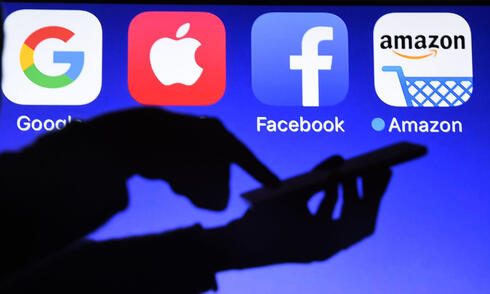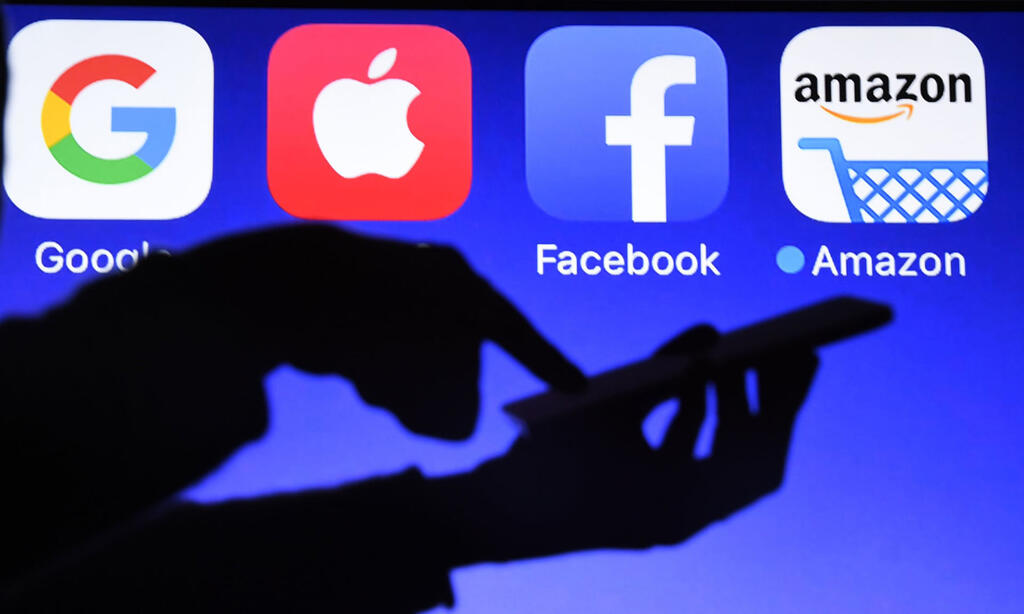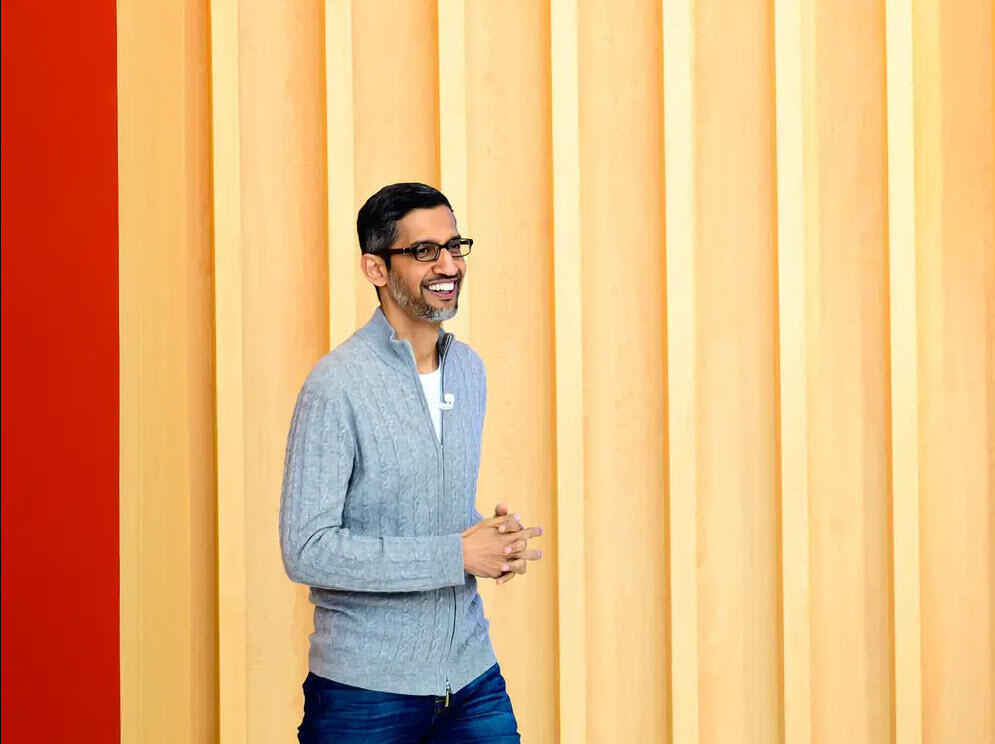
Regulatory storm looms: Europe and the US challenge tech giants' dominance
Behemoths like Google, Meta, Microsoft, Amazon, Apple and others have to date operated in a market almost completely free of regulatory restrictions. However, a global shift in regulatory attitudes now threatens their unbridled power
For more than two decades, the technology giants operated in a market without significant regulatory restrictions. They leveraged this advantage to positions of power and control that made them some of the largest companies in history, and gave them unprecedented control over the lives of billions of people all over the world. However, developments on both sides of the Atlantic now pose a significant threat to this order and aim to limit their power and pave the way for new players.
In the European Union, the legislation designed to regulate the activities of the most influential platforms is moving to its next stage. In the U.S., the Department of Justice's antitrust trial against Google opened this week, the ripples of which could reshape the entire technology industry.
The European Union is currently the leading regulatory force in regards to technology companies. In August, the Digital Services Act (DSA) took effect, which, among other things, requires technology giants to monitor and act against illegal content, prohibits certain advertising drivers and requires information sharing with the authorities.
Last week, the Union took a significant step towards the implementation of a deep regulation with a wider impact - the Digital Markets Act (DMA) - and published the list of major services that will be subject to it when it takes effect in March 2024.
This law, which in addition to online platforms and search engines will also apply to browsers, virtual assistants, operating systems, cloud computing services and digital advertising services, will be binding for services with an annual turnover of 7.5 billion euros or more in the Union and 45 million active users.
Starting in March, it will oblige companies to limit the uses they make of personal information, limit the exclusivity of products or services they offer to end users, prohibit them from discriminating against advertisers who do not sell their services on the platform, and more. At a later stage, it will include obligations such as the possibility of installing third-party applications in the company's operating system, a prohibition on giving priority to the company's products over competing products and allowing the effective movement of data to other platforms or services.
The list of platforms and services that will fall under the application of the law indicates that the Union takes no prisoners and intends to leverage it for a significant change in the market. 22 services operated by five companies - Amazon, Apple, Bytedance, Google Meta and Microsoft - must now prepare for significant changes in the way they operate.
Google is the biggest victim, with eight (Google Search, Google Maps, Google Play, Google Shopping, Android, Chrome browser, YouTube, and its advertising activity) of its services falling under the application of the law, followed by Meta with six services (Facebook, Instagram, WhatsApp, Messenger., Marketplace and advertising - or in other words, all of its revenue-generating activity).
Even Apple, with the App Store, Safari browser and iOS, Microsoft with Windows and LinkedIn, and Amazon with its marketplace and advertising activity, were all forced to make major changes in core services that are responsible for a significant part of their revenues. In addition, the EU Commission is still considering whether Bing, Edge and Microsoft's advertising services, as well as iMessage and Apple's iPad operating system should fall under the law, so its impact may be even wider.
The effects can be far-reaching and some will be well felt among consumers, at least in the European Union. iPhone users will probably be able to download apps from app stores competing with Apple's or directly from the developers themselves. Meta will be prohibited from combining user information from different services without receiving express permission from the user. And Google will be prohibited from prioritizing its services in the search results. "We are finally limiting the economic power of the six gatekeepers, giving more choice to consumers and creating new opportunities for smaller innovative technology companies," said Thierry Breton, the EU's Commissioner for Internal Market.
And while the Union is expanding the regulatory restrictions, on the other side of the Atlantic Ocean, the discussions in "United States v. Google LLC" are expected to begin on Tuesday - the largest antitrust trial of the current century and the first significant one against a technology giant.
At the center of the lawsuit filed in 2020, in the last days of the Trump administration, is the claim that Google took anti-competitive moves to increase and maintain its dominance in the search field, but in fact it asks a much deeper question, which concerns all technology giants: Did they reach their dominant position through breaking the law?
A victory for the Department of Justice could lead to the dissolution of Google or to arrangements that would significantly change its nature and mode of operation. Google does not intend to accept such a move submissively and according to the New York Times, it has recruited hundreds of employees and three leading law firms, and has invested millions of dollars in legal expenses and payments to lobbyists in order to get the lawsuit dismissed.
According to the lawsuit filed in a federal court in Washington, DC, Google strengthened its position as an online gatekeeper through agreements and business practices that prevented competitors from thriving or even gaining a significant foothold. The main part of the lawsuit deals with the company's search engine and Google's practice of paying billions of dollars to mobile manufacturers and browser developers, such as Apple and Mozilla, in order to make its search engine the default in their products.
In this way, Google established its position as the leading search engine in the Western world and made it significantly more difficult for competitors to enter the field. The Department of Justice also claims that through profit sharing agreements, Google prohibited mobile manufacturers from preloading competing search applications. Google controls 90% of the global online search market and this control prevents competitors from reaching the number of users and queries at the scale needed to compete with the company - leaving consumers with less choice and less innovation, and providing advertisers with a less competitive market.
Google's President of Global Affairs, Kent Walker, rejected the claims of the Department of Justice and said that Google's activities are "completely legal" and that the company's success stems solely from the quality of its products.
The trial is expected to last about ten weeks, and among other things Google CEO Sundar Pichai will also testify in it. There are no jurors in this trial and Judge Amit Mehta, appointed by Barack Obama in 2014, is the one who will deliver the decision. Whatever it may be, Google is expected to appeal to the Federal Court of Appeals and then to the Supreme Court.
This is the first major federal antitrust case since the 1998 antitrust trial against Microsoft that ended in a decision (later overturned) to break up the company. In preparation for the hearings, both sides took depositions from more than 150 people and produced more than 5 million pages of documents.
This is the first time that such a case has been managed in the modern age of the Internet, where technology companies are huge, global corporations, worth hundreds of billions and even trillions of dollars, and the online activity is under the wings of a limited number of companies. It also represents a more significant stage in the regulators' struggles against these companies - moving from an attempt to challenge their mergers and acquisitions to an attempt to undermine the fundamental mechanisms that allowed them to accumulate such strength.
According to experts, any ruling by the court could have shock effects that would slow down activity or even disband the tech giants after decades of unfettered growth. "This is a significant case and a precedent-setting moment for platforms that have gained real and lasting market power," Dr. Laura Phillips-Sawyer of the University of Georgia School of Law, whose research deals with antitrust policy and legislation, told the New York Times.
The biggest obstacle that the Department of Justice will have to deal with is the accepted concept in the American legal system that examines antitrust issues through the narrow lens of consumer welfare. Traditionally, judges ruled against companies in these types of cases only when they raised prices. Critics, most notably FTC Chairwoman Lina Kahn, have argued that this allows modern monopolies to abuse their position and stifle competition, even though the courts did not rule against them since their products are often made available to consumers free of charge. This, while consumers are harmed in other less tangible ways as a result of the lack of competition and alternatives.
This case will be the first test of the Biden administration's efforts to change the legal discourse around antitrust and make an indelible mark on the conventional wisdom that has allowed the technology giants to amass unprecedented power. If it succeeds, it will be an opportunity to rewrite the entire existing system of control of the modern economy. If not, there may be no choice but to do what U.S. governments hate to do: create federal antitrust legislation that is adapted to the challenges of the modern age.
Given that existing legislation has not changed much since it was written in the last decade of the 1800s to limit sugar, metal and railroad monopolies, it may be necessary to do so anyway.















